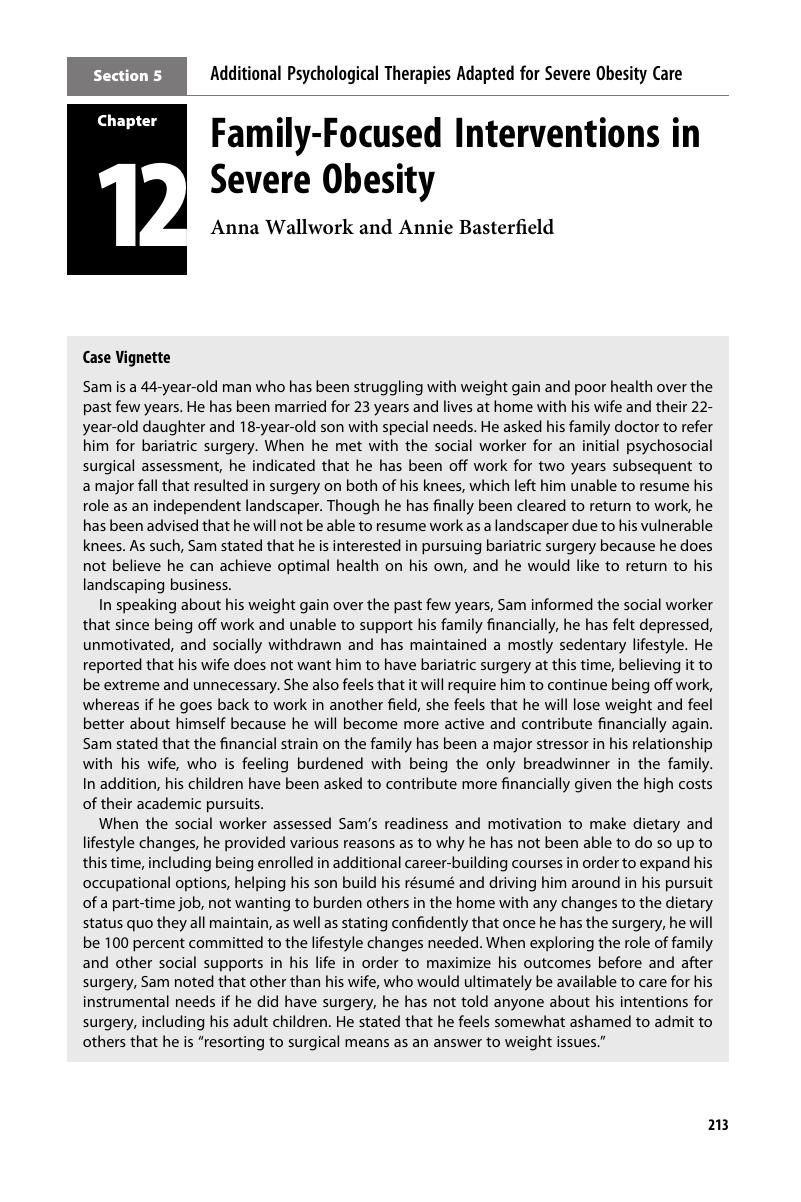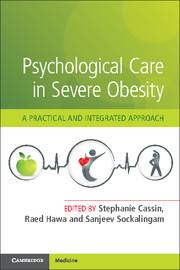Book contents
- Psychological Care in Severe Obesity
- Psychological Care in Severe Obesity
- Copyright page
- Dedication
- Contents
- Contributors
- Preface
- Section 1 Introduction to Psychological Care in Severe Obesity
- Section 2 Adapting Motivational Interviewing for Severe Obesity
- Section 3 Adapting Cognitive-Behavioral Therapy for Severe Obesity
- Section 4 Adapting Mindfulness- and Compassion-Based Therapies for Severe Obesity
- Section 5 Additional Psychological Therapies Adapted for Severe Obesity Care
- Chapter 12 Family-Focused Interventions in Severe Obesity
- Chapter 13 Support Groups for Severe Obesity
- Chapter 14 Telephone-Based Psychological Interventions in Severe Obesity
- Chapter 15 Web-Based and Smartphone Application–Based Psychological Interventions in Severe Obesity
- Chapter 16 Psychosocial Interventions for Other Common Psychiatric Comorbidities in Severe Obesity
- Section 6 Integrated Approaches in Obesity Care
- Index
- References
Chapter 12 - Family-Focused Interventions in Severe Obesity
from Section 5 - Additional Psychological Therapies Adapted for Severe Obesity Care
Published online by Cambridge University Press: 01 June 2018
- Psychological Care in Severe Obesity
- Psychological Care in Severe Obesity
- Copyright page
- Dedication
- Contents
- Contributors
- Preface
- Section 1 Introduction to Psychological Care in Severe Obesity
- Section 2 Adapting Motivational Interviewing for Severe Obesity
- Section 3 Adapting Cognitive-Behavioral Therapy for Severe Obesity
- Section 4 Adapting Mindfulness- and Compassion-Based Therapies for Severe Obesity
- Section 5 Additional Psychological Therapies Adapted for Severe Obesity Care
- Chapter 12 Family-Focused Interventions in Severe Obesity
- Chapter 13 Support Groups for Severe Obesity
- Chapter 14 Telephone-Based Psychological Interventions in Severe Obesity
- Chapter 15 Web-Based and Smartphone Application–Based Psychological Interventions in Severe Obesity
- Chapter 16 Psychosocial Interventions for Other Common Psychiatric Comorbidities in Severe Obesity
- Section 6 Integrated Approaches in Obesity Care
- Index
- References
Summary

- Type
- Chapter
- Information
- Psychological Care in Severe ObesityA Practical and Integrated Approach, pp. 213 - 227Publisher: Cambridge University PressPrint publication year: 2018

